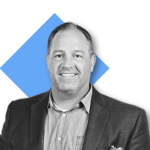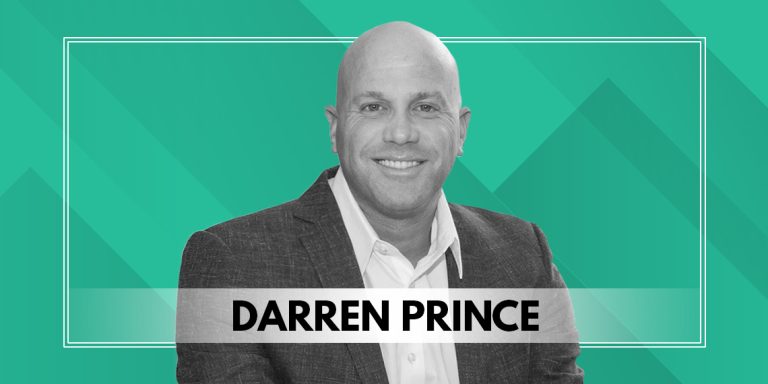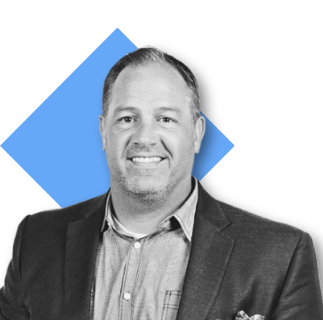Darren Prince is a renowned sports and celebrity agent, best known for representing iconic figures such as Magic Johnson, Hulk Hogan, Dominique Wilkins, David Goggins, Charlie Sheen, Carmen Electra, and many others, as well as the late Smokin’ Joe Frazier, Muhammad Ali, and Jerry West, through his agency, Prince Marketing Group. His entrepreneurial journey began at the age of 14 when he founded a mail-order baseball card company, which he later sold for $1 million. Despite his professional success, Darren battled a 24-year addiction to opioids, leading to a profound personal transformation. In 2008, after a spiritual awakening, he committed to sobriety and has since become a global advocate for addiction recovery and mental health. He shares his experiences through his best-selling memoir, Aiming High, and as a sought-after speaker, aiming to help others overcome similar struggles.
Darren emphasizes the importance of emotional vulnerability, especially among men. He challenges traditional notions of masculinity that discourage emotional expression, stating, “A real man shows emotion. Period.” Drawing from his own experiences and those of his clients, like Magic Johnson and Hulk Hogan—whom he considers dear friends—Darren advocates for embracing emotions as a path to healing and authenticity. He says most of their conversations now are about life—it’s so much more than business. With them, it’s about God, faith, gratitude, and helping others. He’s also worked with legendary figures such as Mike Tyson, whom he has booked multiple times over the years for corporate events. Darren believes true strength lies in the ability to be open and genuine about one’s feelings, a message he consistently shares in his advocacy work.
WOULD YOU LIKE TO GET FEATURED?
Grow Your Brand and Authority in Our Global Magazine
Darren, your journey into business started early, long before you became a top agent. Can you walk us through how it all began?
Darren Prince: I grew up in Livingston, New Jersey, and spent my early years in special education classes. I often felt different and left out, but eventually realized I had something valuable: the ability to hyperfocus on what I was passionate about. When I was 14, my business teacher, Elliot Lovi, challenged our class to create a company. While most kids were coming up with ideas, I already had one—I was buying baseball card collections from friends and building something real. I even asked my dad for insurance on nearly $9,000 worth of cards. He was stunned. I showed him the price guides I used and a newspaper ad for a local card show where I had already booked a table. That day, I made over $1,000. He looked at me and said, “Your brain works differently—that’s a gift. We’re going to tap into that.” That moment lit the fuse. My friend Steven Simon, who shared that first table with me, now runs Prince Marketing Group alongside me.
“Healing is a lifelong process. I’m not the person I used to be, nor am I exactly where I want to be, but I’m grateful I’m not who I was.”
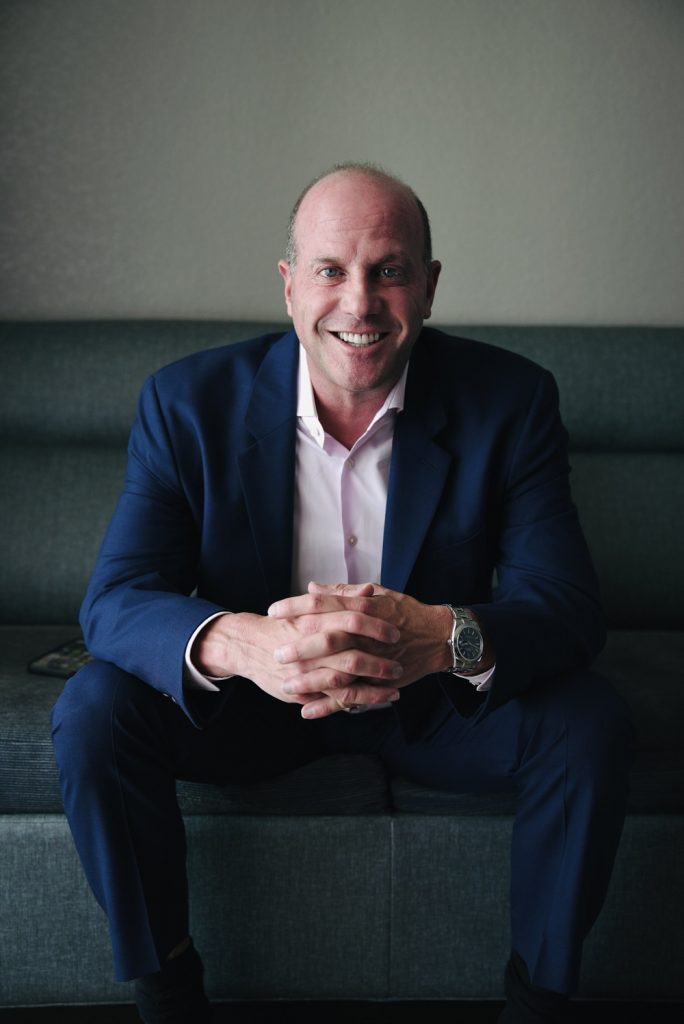
How did the support from your dad and Magic Johnson shape your path, especially when others might have doubted you?
Darren Prince: Back then, the pressure was all about going to college and getting a “real” job—at least that’s what my mom wanted for me. But even as a freshman with a 0.86 GPA, I was already juggling a mail-order baseball card business and dealing with stockbrokers and Wall Street execs. At 16, I had one of the first cell phones in New Jersey. My dad nearly fainted when he saw the bill, but once I explained I was flipping cards and needed to stay connected to clients, it made sense to him. Eventually, I sold that company for a million dollars and shifted into autograph signings. I was fascinated by the legends I saw at card shows—Mickey Mantle, Joe DiMaggio, Hank Aaron—and realized there was a real business opportunity in buying signed items and reselling them. My first major signing was with Muhammad Ali, thanks to my dear friend Harlan Werner, who was Ali’s main agent at the time. After that came Magic Johnson, Chevy Chase, Joe Frazier, Pamela Anderson, and Dennis Rodman. By the time I was 24, I was organizing signing events across the country.
Then came a huge setback. A federal investigation into allegedly forged Michael Jordan memorabilia nearly wiped me out. I had unknowingly purchased items from a bad source and, although I wasn’t charged with fraud, I was held accountable for making a false statement to the FBI. I offered refunds, went nearly a million dollars into debt, and almost lost everything. In that moment, my father’s words echoed in my mind: “Your reputation is the hardest thing to uphold and the easiest to lose.” Letters of support from Magic Johnson and Muhammad Ali helped me regain some of the trust I had lost.
Not long after, on one of our regular fishing trips, my dad asked me what I wanted to do next. I told him I dreamed of becoming a sports agent, but didn’t think I could without a law degree. He looked at me and said, “Life’s about who you know, not what you know. You already know the people. That’s your power.” Shortly after that conversation, Magic gave me two years to represent him. He told me it wasn’t about how successful he would become—he was already destined for greatness—but about how successful he could help me become, so I could pay it forward once I reached the top.
That opportunity changed everything. Within a month, I had a full roster of clients, and that marked the true beginning of Prince Marketing Group. Magic became like a business godfather. He understood the power of leverage because he lived it. He taught me to do the same, giving me space to grow and expand. He knew that the more I broadened my network, the more value I could bring to everyone around me. That mindset—making sure everyone wins—is what has kept the agency strong to this day.
You were successful on the outside, but privately battling addiction and self-doubt. What led you there, and how did your dad respond when you finally opened up?
Darren Prince: I stayed away from illegal drugs because of the morality clauses in my contracts, but I started using prescription opiates—OxyContin, Vicodin, Percocet—to manage chronic back pain and sciatica. At first, it helped. For five or six years, I was functioning. But eventually, I wasn’t living to use—I was using to live. I had the clients, the reputation, the business, everything I thought I wanted. But inside, I felt completely empty.
There were moments when I considered ending my life, but I didn’t have the courage. I opened up about that period on Jay Shetty’s podcast, and he said something that stayed with me: “Most people chase success because they haven’t found it. But you were already there, and you still felt lost.” That hit home.
My dad always sensed something was off. When I was younger and he caught me drinking or smoking weed, he would pull me aside and ask, “Why can’t you just feel good about yourself?” I’d say I did—that the substances helped me get creative—but he’d just shake his head and say, “Someday you’ll understand.” And he was right. I thought those pills were my fuel, but in reality, I was numbing a deeper pain: the feeling that I didn’t truly belong.
At first, the pills helped. For five or six years, I was functioning. I ran my business, kept up appearances, and convinced myself I was in control. But eventually, I wasn’t living to use—I was using to live. I had the clients, the reputation, the success I thought I’d always wanted… but inside, I was empty. There were moments I seriously considered ending my life, but I didn’t have the courage.
I opened up about that period on my friend Jay Shetty’s podcast, and he said something that stuck with me: “Most people chase success because they haven’t found it. But you were already there—and still felt lost.” That hit hard, because it was true.
My dad had always sensed something was wrong. When I was younger and he caught me drinking or smoking, he’d pull me aside and ask, “Why can’t you just feel good about yourself?” I’d brush it off, tell him I did, that it helped me be creative. But he’d just shake his head and say, “Someday you’ll understand.” And he was right. I thought substances were helping me tap into my potential. In truth, I was numbing the deeper feeling that I didn’t belong.
What was it like for your family during your darkest moments, and how did you come to understand the nature of addiction and recovery?
Darren Prince: That’s a powerful question. It takes me back to when I was 21. I had just completed a court-ordered outpatient program, and to celebrate, I went to New York with a friend. On the drive back, he fell asleep at the wheel. I woke up in the ICU with 90 stitches, a broken nose, and my lip split in half. The look on my parents’ and my sister Stacey’s faces when I opened my eyes was devastating. That moment made it painfully clear: addiction doesn’t just destroy you—it shatters the people who love you.
Some say addiction is genetic. Maybe that’s true, but I’ve known people born into it who stayed clean, and others with every advantage who didn’t make it. For me, addiction was never really about the substance—it was about escape. We don’t use just for the high; we use to fill something missing inside us. Drugs and alcohol are tools we reach for when we haven’t learned how to face the pain.
A close friend of mine had everything—family support, money, talent. But two years ago, he was found dead in his apartment. That shook me deeply. Trauma doesn’t have one face. It can look polished on the outside and still be drowning inside.
At some point, we have to take responsibility. Your parents can’t do it for you. I’ve seen people rise from nothing, and that strength is more powerful than any privilege. But when society keeps whispering—or screaming—that you didn’t earn what you have, that you’re not enough, that’s when the spiral begins.
“Real strength comes from being able to feel.”
Have you noticed any change in how the public views addiction? Is the stigma shifting?
Darren Prince: There’s definitely more awareness now, but not a lot has changed in how people actually struggle. Personally, I don’t even like calling addiction a disease. It feels unfair to people battling cancer, Alzheimer’s, or diabetes—conditions with no element of choice. Addiction is different. At some point, there’s a decision involved. And it doesn’t discriminate—it affects everyone, from Ivy League graduates to people in jail, from Park Avenue to the park bench.
Eventually, you have to take full responsibility. No one forced me to snort Percocet the night before one of the biggest moments of my career. I was sitting courtside at the 2002 NBA All-Star Game, between Muhammad Ali and Joe Frazier—two legends who loved and respected me more than I knew how to love myself. And still, I didn’t feel worthy. I excused myself to the VIP tunnel, found a bathroom, and used. That’s how deep it ran—I was surrounded by greatness, yet felt completely hollow.
I wish I could say I was fully present that night, but I wasn’t. What I can say is that years later, when both Joe and Muhammad passed, I attended their funerals sober. I even escorted Muhammad and his wife Lonnie to Joe’s service. That moment marked something profound for me—I realized I wasn’t a bad person. I had been sick. And I got better. Now, my mission is to help others find that same recovery and peace.
What drives you to share your story so openly, and how do you help others let go of what no longer serves them on their path to recovery?
Darren Prince: Being open about my journey means everything to me. My rock bottom came on July 2, 2008. My Uncle Stew and his then-girlfriend Andrea, who had five years of sobriety at the time, stopped by my place. She was my first “God Shot.” She looked past the celebrity photos lining my walls and said something that shattered me: “None of this means anything if you don’t mean anything to yourself.” That moment broke me open.
She helped me start detoxing without rehab, and although the next day I hit a wall—shaking, sick, overwhelmed—I found a turning point. I dropped to my knees and prayed to be freed from the hell I was living. That’s when it happened: I felt a white light surround me, and a voice said, “You’re ready.” I flushed the pills, went to a 12-step meeting, and for the first time, I felt like I belonged. There was one line that changed everything: “We will love you until you learn to love yourself.”
From that day forward, I committed to sharing my story. My dad supported the mission wholeheartedly. After he passed in 2017, I made him a promise—I would keep helping people, and he would watch from above. That promise became the heartbeat of everything I’ve done since. It led to my best-selling memoir, Aiming High, to speaking engagements across the country, and to appearances on national platforms like Chris Cuomo, Tucker Carlson, Extra TV, Fox and Friends, Dr. Oz, Good Day NY, and Jay Shetty’s On Purpose podcast. I even had the honor of being invited to the White House multiple times in support of President Trump’s opioid epidemic initiative.
That promise turned my personal struggle into something much bigger than business—it became a purpose rooted in saving lives.
Healing is a lifelong process. I’m not the person I used to be, and I’m not exactly where I want to be—but I’m deeply grateful I’m not who I was. Today, what matters most are the moments of real impact. Like the message I got last night from someone who checked into treatment after watching one of my interviews. Or the man I met in an Uber last September—he had lost his insurance coverage and didn’t know how to afford rehab. I offered to cover his treatment through my nonprofit, the Aiming High Foundation. On Thanksgiving, he saw his family for the first time in two months. Now he’s nine months sober, rebuilding his life and helping others do the same. That’s a God-given blessing.
For me, it’s not just about attracting success—it’s about creating space for real transformation. And that often means letting go of what no longer serves us.
There’s still so much stigma around men showing emotion. Like addiction, vulnerability is often seen as weakness. Why do you think that is, and how have you navigated that as a man in a high-profile industry?
Darren Prince: It gets me every time. I used to cry from pain—now I cry because something moves me. And I love that. One of my spiritual brothers will text me, “Bro, I’m crying as I write this,” and I’ll say, “Good. That’s growth.”
Before I got sober, even my laughter felt like a performance. Now, when I laugh or cry, it’s honest. And that honesty—that vulnerability—is real strength.
Forget those outdated ideas of what it means to be a man. Don’t be impressed by who I work with or what I’ve done. That’s surface-level. What really matters is waking up every day and trying to be better than I was yesterday. That’s true wealth.
And I’m not alone in this. A few months ago, I was at a corporate event with my good friend Ryan Fiterman and Mike Tyson. We spent fifteen minutes talking one-on-one about self-love. Mike—this heavyweight legend—shows emotion all the time. If he can do it, so can the rest of us. Strength isn’t about holding it in. Real strength comes from allowing yourself to feel.
When you see young stars rising fast—often without guidance or protection—how do you approach helping them avoid the mistakes you’ve seen or lived yourself?
Darren Prince: It breaks my heart. I’ve had so many conversations about this with legends I work with. These young stars aren’t handed a playbook, and the system pushes them hard—often without preparing them for what comes next.
Thankfully, we’re starting to change that. Together with my friends James “Amo” Amorosi, Dominique Wilkins, and Kevin Harrington, we founded The Legacy Fund. Its mission is to bring financial literacy and purpose to the next generation of athletes and public figures. We’re not just helping them protect their money—we’re giving them something to belong to. They sit on boards, learn how businesses operate, and stay engaged.
Because when the spotlight fades, many of them feel like they’re dying for the first time—unless they’ve already started building what comes next.
I’ve also reached out to people in the industry when I’ve seen them struggling. In recovery, I’ve had moments where I could sense someone was trying to fill a void. When that concern comes from someone like me—who’s lived it and worked at the highest level—it lands differently. I can cut through the noise, the enablers, the yes-men, because I know what that spiral feels like.
That’s why we’re opening the Dominique Wilkins Financial Literacy Center—to help young athletes manage the sudden wealth they come into, especially now with all the NIL money flooding in. Most of them never receive a handbook on how to navigate that. I remember hoarding cash as a teenager, needing everyone to see me as a big shot. But that was just insecurity. I thought people loved me for who I was, but really, they loved what I had. Eventually, that illusion catches up to you.
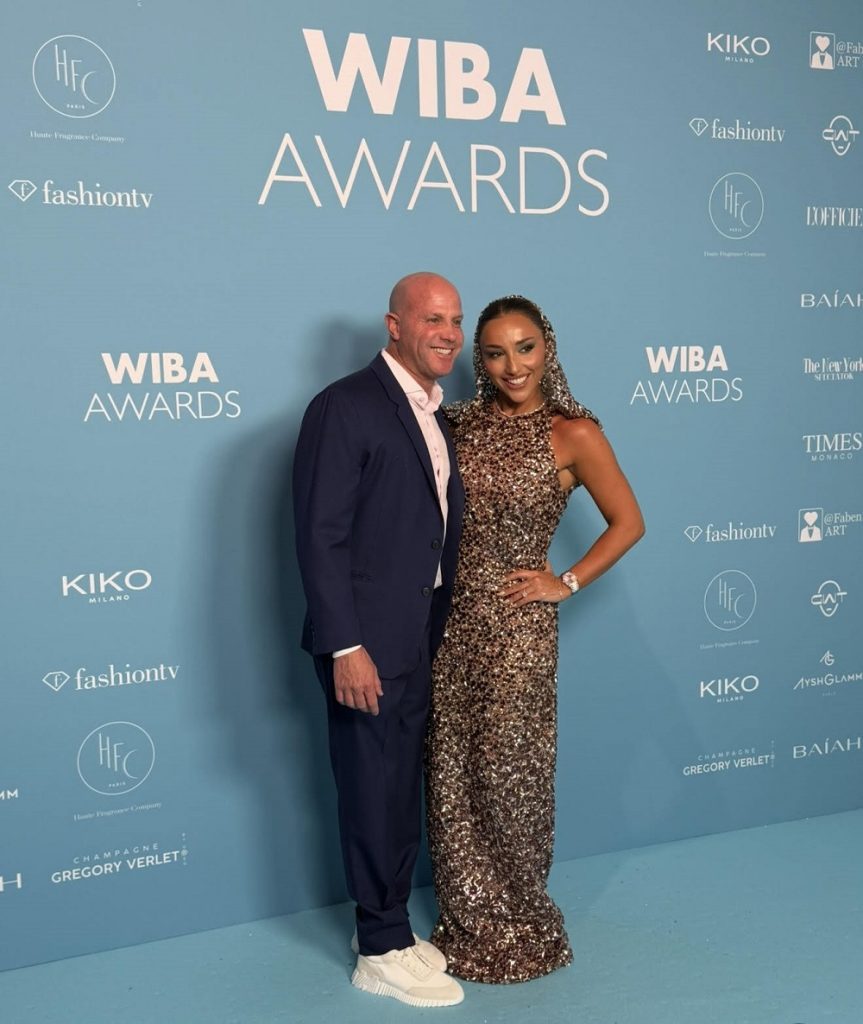
In this stage of your life, what relationships and values mean the most to you?
Darren Prince: My mother passed away last November. Just like my dad, she got to see the best version of me—someone who’s using his life to help others. Of course they were proud of my business achievements, but what meant more to them was how many lives I’ve touched through recovery.
Today, I’m surrounded by spiritual brothers and sisters—inside and outside the world of recovery—who would be there for me in a heartbeat. I’ve always focused on giving rather than receiving, but I’ve also learned that sometimes, in order to be selfless, you need to be a little selfish. That’s how I recharge so I can keep showing up for others.
My dog Rodney means the world to me. My teammates Mathilda and Karla in our LA office are incredible—they work hard every day, keep things moving, and allow me to stay grounded and in service.
Then there’s my inner circle—four of my closest lifelong friends. They’ve all been part of Prince Marketing Group at some point, and they’ve all become successful in their own right. That’s exactly what Magic taught me back in 1994: pay it forward. I’ve known Frank Basile since our baseball card days over 40 years ago. Nicky “Nicky C” Cordasco is now Sylvester Stallone’s business partner in his apparel brand. Chris “Vo” Volo has been by my side through it all. And Patrick Ganino, the muralist, inspires me every day. Celebrating each other’s wins—in business and in life—is the truest form of friendship I know.
When it comes to growth, I have my own Mount Rushmore. My number one spiritual brother, Steve Delle Valle, has been with me since day one of sobriety. Lonjerey, a powerful healer from Austin, Texas, helps me with breathwork and meditation. John Alvino, a friend of more than 30 years, is a master NLP technician. With their help, I’ve been able to release deep subconscious blocks, old traumas, and negative patterns. Twelve-step spiritual meetings are still a vital part of my routine.
Since my mom passed, my sister Stacey and I have become closer than ever. Watching her commit to her own personal growth means everything to me.
For a long time, love—true, aligned love—was missing from my life. It wasn’t that I was with bad people; they just weren’t in tune with the kind of inner work I was doing. A lot of people avoid facing their deepest shadows. They keep moving, distracting, repeating. But without healing, you continue attracting the same patterns and people.
For over two years, Nutsa Buzaladze was one of my clients. She’s already well known in her home country of Georgia and across Europe—a singer, dancer, American Idol and Eurovision finalist. She moved to Los Angeles earlier this year so we could grow her career in the U.S. From the beginning, we bonded over our faith in God, but neither of us expected the connection that would evolve once she arrived.
As she began investing in her own healing, we grew more aligned. She’ll tell you herself—I always said, “Never mix business with pleasure.” But she made the first move, and I admired that. She goes after what she wants.
Now we’re in love—in a way neither of us has ever experienced before. We take full ownership of our pasts. We don’t blame exes or bad luck or other people. We know we made those choices from a place of unhealed trauma. Today, we meditate together, we breathe, we support each other’s peace. She is my peace, and I am hers.
The best part? We get to thrive in this industry side by side. Now I get to pay forward what Magic told me three decades ago. I’m using my experience and network to help Nutsa pursue her dreams of becoming a star in the U.S. I’m proud of how committed she is to her personal growth, and I know her story will inspire women around the world.
She just released a summer anthem on June 2nd called All My Life. What’s incredible is that she recorded it right after moving to L.A.—one month before we became a couple. The song is all about finding that one special love of a lifetime. Looks like it manifested for us, with God’s help, of course.
(Editor’s note: Darren and Nutsa got engaged on Saturday, June 7th, just before this article’s release. They’re overjoyed and looking forward to building a life together—one rooted in purpose, love, and the courage to heal.)
Jed Morley, VIP Contributor to ValiantCEO and the host of this interview would like to thank Darren Prince for taking the time to do this interview and share his knowledge and experience with our readers.
If you would like to get in touch with Darren Prince or his company, you can do it through his – Instagram
Disclaimer: The ValiantCEO Community welcomes voices from many spheres on our open platform. We publish pieces as written by outside contributors with a wide range of opinions, which don’t necessarily reflect our own. Community stories are not commissioned by our editorial team and must meet our guidelines prior to being published.
Read Special Edition Articles
- 10 Traits of Highly Successful Entrepreneurs
- Unlocking the Secrets of Smart Goal Setting Leads to Success
- Maximizing the Power of Networking: The Key to Growing Your Business
- Conquering the Top 5 Most Common Challenges Faced by Entrepreneurs
- Discovering the 3 Essential Steps to Building a Strong, Effective Team as a Startup Founder
- The 7 Key Roles of Market Research in Startup Success
- 5 Ways to Unleash the Benefits of Mentorship for Entrepreneurs
- Mastering Financial Management: The Key to Success for Small Business Owners
- The Impact of Artificial Intelligence on Job Markets
- Resilience and Persistence: The Two Essential Ingredients for a Successful Business
Rockstar Profile
Legacy Over Limelight: Darren Prince’s Real Mission
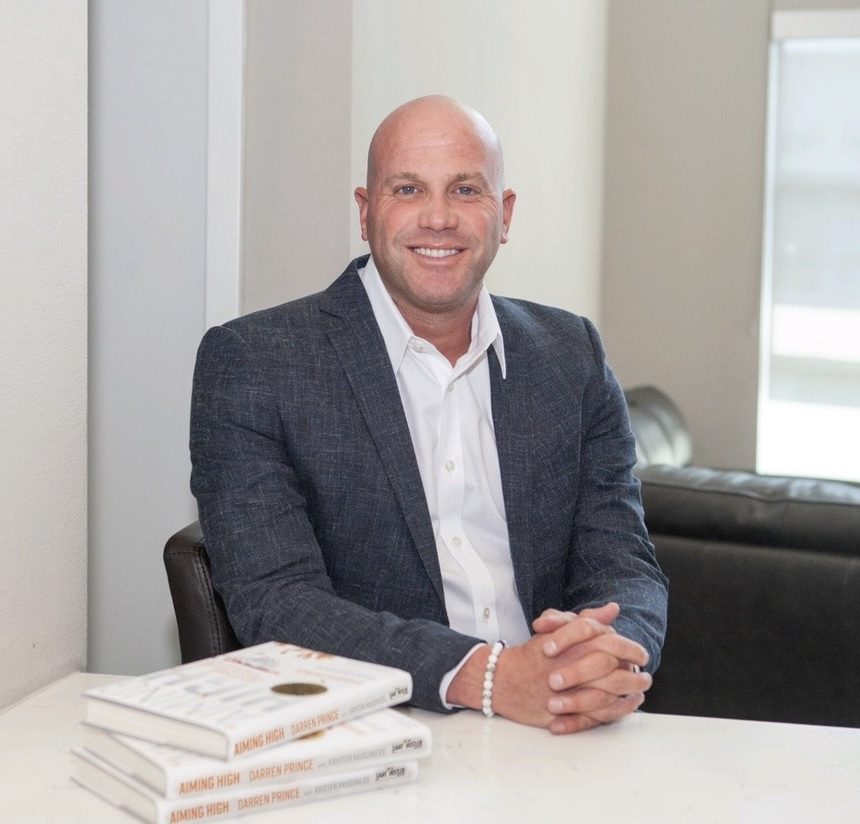
From Hollywood boardrooms to recovery centers, Darren Prince has redefined leadership—not just in business, but in life.
Foundations of a Legacy
Darren Prince’s career wasn’t born from a corporate playbook. It was forged in raw ambition and relentless curiosity. From a teenage entrepreneur flipping baseball cards to the founder of Prince Marketing Group, Darren didn’t just follow trends—he anticipated them.
Long before personal brands became buzzwords, he was shaping public personas, building bridges between icons and industries, and elevating athletes and celebrities into global forces.
With the likes of Magic Johnson, Hulk Hogan, Ric Flair, Charlie Sheen, David Goggins, Carmen Electra and others, and late legends like Smokin’ Joe Frazier, Muhammad Ali, and Jerry West, Darren doesn’t just book keynote events, commercials, and endorsements—he builds legacies.
At the heart of his brand has always been a simple yet powerful code: relationships over revenues, reputation over reach. And that philosophy has stood the test of time in an industry known for its volatility.
His best-selling memoir, Aiming High, chronicles that transformation—from boardroom deals to near-collapse, and ultimately, to the spiritual shift that changed his life.
Beyond the Spotlight
Darren Prince knows better than most that influence without grounding can be dangerous. While his professional story reads like a masterclass in celebrity marketing, his personal evolution runs deeper.
Rather than retell the full arc of his recovery, which he shares openly in interviews and his bestselling memoir Aiming High—what matters here is what he’s chosen to do with it. Darren didn’t just find sobriety. He found a new definition of success, one rooted in service, not spotlight.
Today, the story he tells isn’t about celebrity. It’s about clarity. About walking through fire, emerging whole, and using that experience to help others navigate their own.
It’s this duality—the businessman with vision, and the man with heart—that has made Darren Prince one of the most respected figures in both entertainment and recovery communities.
A Life Rebuilt on Purpose
Today, Darren Prince lives in service of something far more lasting than fame: recovery, integrity, and impact. With nearly 17 years of sobriety, he’s become a beacon of hope for others facing similar struggles, especially those operating at high levels of pressure and visibility.
His best-selling memoir, Aiming High, chronicles that transformation—from boardroom deals to near-collapse, and ultimately, to the spiritual shift that changed his life.
The book opened doors for Darren to become a sought-after keynote speaker and mental health advocate, delivering talks for corporations, schools, and recovery organizations across the globe, and appeared on top media outlets and podcasts sharing his journey to help the masses.
Innovating Wellness: The Aiming High Protocol
In recent years, Darren Prince has ventured into the realm of holistic wellness, recognizing the profound connection between mental health and physical well-being.
He introduced the Aiming High Protocol through the Brain.One mental fitness app—a company Prince felt compelled to be a part of, as no one else is focusing on brain health protocols to this level. Prince stated it’s been life-changing for so many.
The comprehensive initiative is designed to optimize mental clarity and emotional resilience, incorporating practices such as grounding techniques, frequency therapy, and structured meditation routines.
This reflects Darren’s deep commitment to providing accessible tools for sustained recovery and personal growth. By integrating these methods into his daily life, he not only maintains his own sobriety but also offers a blueprint for others seeking balance and purpose.
Empowering Recovery: Advocacy and the Aiming High Foundation
Beyond his professional endeavors, Darren Prince dedicates a significant portion of his time to advocacy and education. He frequently speaks at schools, corporations, and recovery centers, sharing his personal narrative to inspire and educate diverse audiences.
His engagements aim to destigmatize addiction, promote mental health awareness, and encourage individuals to seek help without shame.
Through these speaking engagements, Darren emphasizes that true success encompasses personal well-being and the courage to overcome adversity.
Complementing his advocacy, Darren established the Aiming High Foundation, a 501(c)(3) nonprofit organization dedicated to providing treatment resources for those battling addiction and mental health issues.
The foundation allocates 100% of its proceeds to support individuals in need, focusing on high-functioning addicts, at-risk executives, and teens struggling with self-worth.
By funding treatment programs and raising awareness, the Aiming High Foundation serves as a beacon of hope, offering a pathway to recovery for many.
Prince has been fortunate to have generous donors from his extensive rolodex. He also thanks renowned speaker Sean Callagy, who is an inspiration himself because he is legally blind, and his Unblinded Organization for their generous contributions in the latter part of 2024.
These donations have allowed many to receive the help they needed through the Aiming High Foundation in 2025.
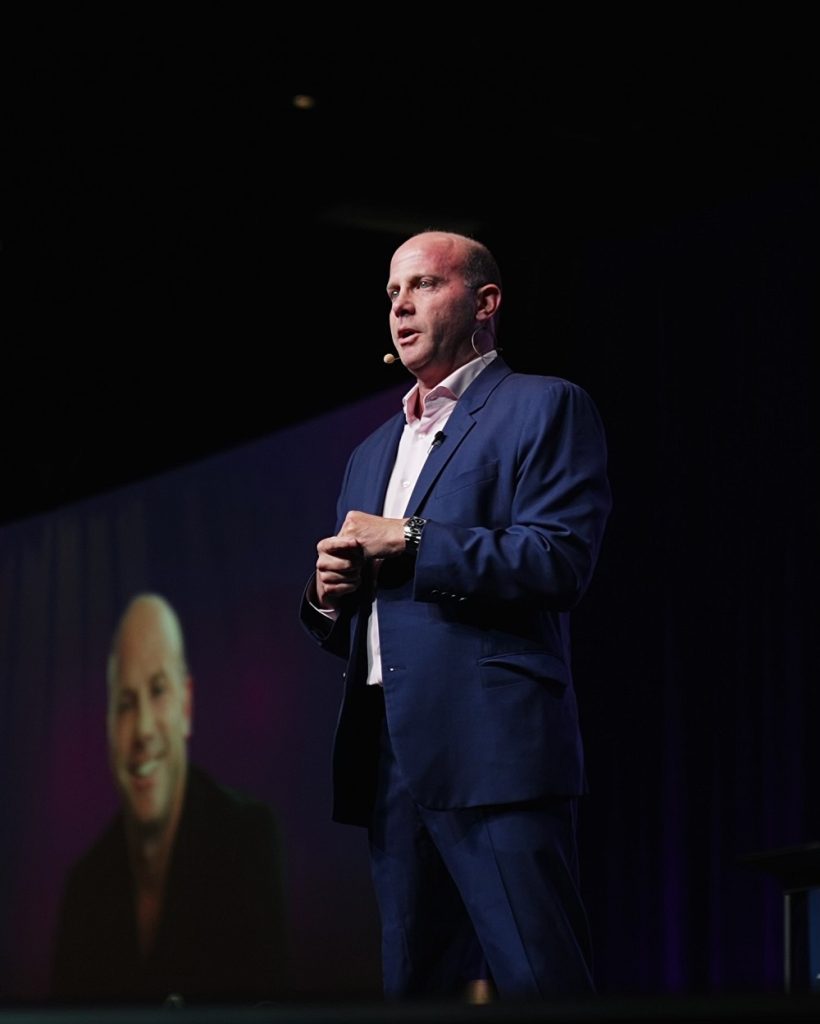
Continuing the Mission
While Prince still runs a multi-million-dollar agency and maintains strong ties to the worlds of sports and entertainment, his measure of success has shifted.
It’s not about being in the room with the famous—it’s about being present for the broken, the overlooked, the ones who think they have nowhere to go.
His story resonates because it’s not about perfection—it’s about persistence.
It’s not about avoiding failure—it’s about using it.
And it’s not about being known—it’s about being real.
Darren Prince doesn’t just build brands. He helps rebuild lives.



